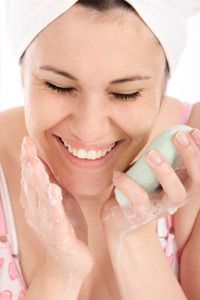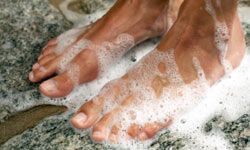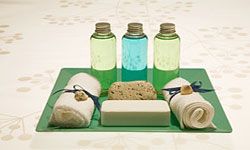If you've seen one TV commercial for facial cleanser, it might seem as though you've seen them all. A woman stands in front of a mirror and sink in her sanctuary-like bathroom. She effortlessly massages cleanser into her face and then rinses by splashing her face with water. After patting her face dry with a fluffy towel, she reveals a clean, beautiful glow.
You might like to have beautiful skin like what you see in the commercials, but if you're using a bar of body soap on your face, you could end up with skin so dry or irritated that it hurts to smile -- and nothing to smile about. That's because body bar soaps often contain sodium lauryl sulfate, an ingredient that sends your skin's natural oils running for cover [source: Bruno]. The fragrances added to body soap can also be hard on your face.
Advertisement
Fortunately, there are many soaps on the market specially formulated for the more sensitive skin on your face. However, if you've browsed the soap aisle at the store lately, you know there are shelves and shelves of brands to choose from. To choose the best product for your skin, look past the fancy packaging and read the ingredients list.
The basic purpose of face soap is to clean off all the dirt, pollutants, bacteria and dead skin cells that build up on your skin over the course of a day. It's a common misconception, though, that you have to get your face squeaky clean. In fact, a squeaky clean face is a face devoid of natural oils, which is precisely what you don't want. It is, however, possible to get your face clean without drying it out.
One face-friendly alternative to body soap is, ironically, soap-free. Many gentle cleansers and beauty bars are made of synthetic detergents that are less likely to irritate your skin after cleansing [source: American Academy of Dermatology]. These products don't technically qualify as soap, but they do the same job.
Finding a face soap that works well for you shouldn't be a complicated task if you understand what exactly soap is and how the common ingredients affect your skin. If you're a little rusty on your soap chemistry, read the next page for a refresher course.
Advertisement


